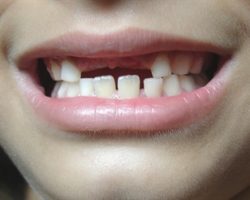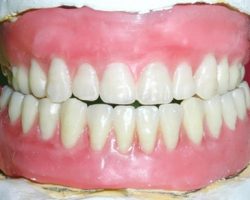
How Dentures May Cause Tongue Irritation and Pain
Wearing dentures should be a comfortable experience that allows you to eat all your favorite foods and forget that you have dentures. Sometimes discomfort or irritation can be caused by your dentures, but there are solutions. Understanding what causes denture discomfort is the first step towards correcting the problem. The lower denture is often the most problematic for denture wearers, because it rests on top of the lower gums with no natural suction to hold it in place. The lower denture can cause pain if it shifts while you are eating or speaking, especially if it comes into contact with the delicate membrane that connects your tongue to your mouth. The floor of the mouth under the tongue is a very sensitive area. By nature this area was not designed to have anything come in contact with it except the tongue, and even the slightest touch can be irritating or…

 English
English Deutsch
Deutsch Français
Français Italiano
Italiano Español
Español Svenska
Svenska Português
Português 日本人
日本人 Dansk
Dansk Norsk
Norsk Suomi
Suomi Czech
Czech







